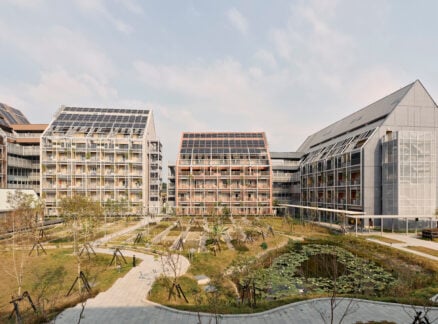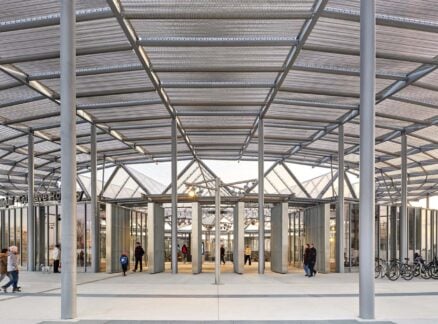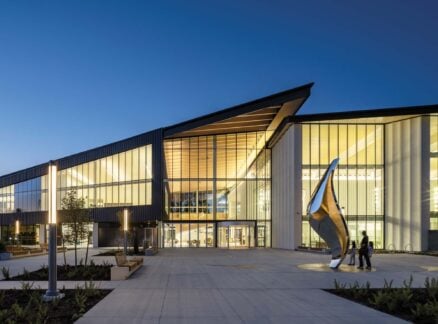May 29, 2013
Make It Right to Work With Sioux and Assiniboine Tribes
Partnering with the Sioux and Assiniboine tribes of Montana, Brad Pitt’s foundation to build 20 LEED Platinum homes.
In its continuing effort to reach beyond its original mandate in New Orleans, Make It Right (MIR) announced today a new initiative. The group, founded by Brad Pitt in the aftermath of Hurricane Katrina, will partner with the Sioux and Assiniboine tribes of Fort Peck, Montana to build 20 LEED Platinum homes as part of a larger sustainable community effort.
The Fort Peck Sustainable Village project has two major components. The first piece is a sustainable master plan for 275 to 300 acres of tribal land, with the goal of creating an off-the-grid community. To that end, MIR is currently in discussions with some of their frequent collaborators and advisors, such as Graft, William McDonough + Partners, and BNIM to design the homes. “As we enter the design phase, we’ll be including a broad group of designers, architects, and community leaders,” says Tim Duggan, MIR’s landscape architect.
The homes are expected to break ground next year and cost approximately $175,000. They will be powered, it is expected, by a combination of solar and geothermal. “We anticipate some modular, some syps, some stick built, and possibly straw bale construction,” Duggan says.
The 15 three-bedroom and 5 four-bedroom homes, which will likely serve multiple generations, will be funded by $5.1 million worth of tax credits provided by the Montana Board of Housing. MIR played a pivotal role in acquiring those tax credits. Jason Campbell, head of a tribal community development called Arete, was moderating a conference panel on “marginalized communities” and met Tom Darden, Make It Right’s executive director. “Jason said to Tom, ‘We may not have suffered through a storm like Katrina, but we’ve been through storms of our own,’” Duggan says.
Following a visit to Fort Peck, MIR raised $25,000 for consultants, who helped the tribes navigate the complicated tax credit application process. The project was just one of four selected by the state.
The Fort Peck project—along with its other initiatives in Newark, New Jersey and Kansas City, MO —provide MIR with an opportunity to create a new development model moving forward—one where it serves as a seeding organization and adviser, rather than the all-purpose developer role it plays in New Orleans. “From a land use perspective, this should be easier—we have a site and it’s on tribal land,” Duggan says. “We see this as an opportunity in sustainable nation building.”





